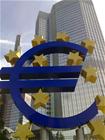Economic Super Heroes Take the Power in Greece and Italy
Adelina Marini, November 16, 2011
 In moments of prosperity high level corruption can hardly be pointed out as harmful for the economy because everyone, more or less, is inclined to close their eyes for irregularities when everything is going on well. It is a fact, though, that political egoism, corruption, thirst for power and personal benefiting slowly but steadily drinks the blood out of societies and their economies. And when a cataclysm happens first the drained bodies collapse. This is precisely what happened to Greece and Italy. This is why, on the one hand it is relieving that on top of those countries, swallowed by eurozone's debt crisis, stood not political leaders but eurocrats.
In moments of prosperity high level corruption can hardly be pointed out as harmful for the economy because everyone, more or less, is inclined to close their eyes for irregularities when everything is going on well. It is a fact, though, that political egoism, corruption, thirst for power and personal benefiting slowly but steadily drinks the blood out of societies and their economies. And when a cataclysm happens first the drained bodies collapse. This is precisely what happened to Greece and Italy. This is why, on the one hand it is relieving that on top of those countries, swallowed by eurozone's debt crisis, stood not political leaders but eurocrats.
In the southern European countries politics is something peculiar that is trying every way possible to distinguish economic logic from political actions, no matter that politicians in those countries skillfully cash down their political influence. Such an intertwined entity as the eurozone, however, cannot stand political eccentricities.
In Athens a European banker has become a prime minister
Greece's problems are known quite well but the options for solutions were sought  in the wrong directions - with purely economic means. This Autumn, though, the world started riping for the main problem - the political elite, who are willing to sacrifice even the very existence of their country only to remain in power as long as possible. This is what led to the marathon negotiations in Athens caused by the shocking statement of George Papandreou that the decisions, achieved so painfully, about ending the crisis from end-October must be subjected to a referendum. This decision, announced on the eve of a key summit of the G20 did not leave even a hint of doubt that the situation was going out of control.
in the wrong directions - with purely economic means. This Autumn, though, the world started riping for the main problem - the political elite, who are willing to sacrifice even the very existence of their country only to remain in power as long as possible. This is what led to the marathon negotiations in Athens caused by the shocking statement of George Papandreou that the decisions, achieved so painfully, about ending the crisis from end-October must be subjected to a referendum. This decision, announced on the eve of a key summit of the G20 did not leave even a hint of doubt that the situation was going out of control.
And exactly as it is with the selection of a pope, the Greek political elite closed themselves for four days until they found a political compromise that would fit to the European needs too. So, after Mr Papandreou's promise to resign, his place was taken by Lucas Papademos - a former governor of the Greek central bank and a former vice president of the European Central Bank (ECB). A curious element from Mr Papademos's biography is that he headed the national bank of Greece at the very moment when the country was joining the eurozone (1994-2002). This is also his  weak spot as already not few are the voices that say that he is impossible not to have known that Athens was dressing up its fiscal data in order to make them fit the monetary union's criteria.
weak spot as already not few are the voices that say that he is impossible not to have known that Athens was dressing up its fiscal data in order to make them fit the monetary union's criteria.
He was a vice president of the ECB between 2002 and 2010. Mr Papademos is the typical Greek politician educated abroad. He graduated from the Massachusetts Institute of the Technology (MIT), he was a senior economist at the federal reserve bank in Boston. All this gives enough ground to think that, although he has no political experience in Greece, he has sufficient economic knowledge and expertise to apply the rescue measures for his country, drawn by the decisions of the eurozone leaders on October 27. This was the basis of the political agreement when George Papandreou asked the Greek president a national unity government to be formed in order to avoid any consequent government to require changes to the agreements with the eurozone partners.
According to the agreement, Greece will receive the next so needed tranche from the first bailout programme (worth 110bn euros) at the amount of 8bn euros. Separately the country will receive a haircut of its debt of 50% and in the next 2 years it will receive another financial injection, amounting totally to 130bn euros. For the purpose, however, the government in Athens will have to implement a hard programme, that includes literally revolutionary changes of the very statehood, like creation of mechanisms for tax collection, which the country does not posses. The authorities in Athens will be assisted by a permanent mission of the Troika (the European Commission, the ECB and the IMF). From this perspective, the selection of Mr Papademos, a man well acquainted with the European political reality, is very good.
This is why the European Union leaders, Jose Manuel Barroso and Herman Van Rompuy, welcomed the news for the selection of Papademos by stating that the "agreement to form a national unity government opens a new chapter for Greece". And what is very important in the joint statement of the presidents of the Commission and the European Council is that it points out: "We reiterate that our European Institutions will continue to do everything within their power to help Greece. But Greece must also do everything within its power to help itself. We have relayed these messages to the Greek leadership." The last sentence leaves no doubt that the selection of Lucas Papademos was not just wanted but expected.
"Super Mario" heads the Italian government
Another example for political arrogance and self-love is Silvio Berlusconi, described in the past as eccentric. Eccentric could have been used in times of economic prosperity before the crisis of 2008 because, in spite of the numerous scandals involving his name, related to his personal life, his media empire, with corruption, Silvio was loved till the very last moment by the Italians. Instead of punishing him for his wrongdoings, they elected him several times and made him the first Italian post-war premier who survived a whole mandate. You probably  remember one of the peculiarities of Italian politics - in a year or two parliamentary elections to take place.
remember one of the peculiarities of Italian politics - in a year or two parliamentary elections to take place.
Alas, these glorious times both for Berlusconi and for the demonstration of political eccentricity are long gone, when Italy, the third largest eurozone economy and the eighth in the world was not spared by the debt crisis. But even when it was clear that the markets would not bypass Italy, Mr Berlusconi continued to ignore all calls for retreat and tough measures. He skillfully managed to convince his partners in the eurozone that the programmes his government adopted to cut spending and boost growth would be applied, but every time when they had to be applied in practise there was a retreat. This enraged as investors, so the media in the European Union who started like one to ask the European leaders - do you really trust Mr Berlusconi that this time he would stick to his commitments.
This is what led to the situation last week when in the Italian parliament was filed a draft bill for Italy's budget for 2012 which, under the pressure from Brussels, Paris and Berlin, is very tightened. It is at that moment when rumours started to spread that Mr Berlusconi would resign, which he attractively denied with flamboyant messages in the social networks. When Italy's borrowing costs reached 7% and even surpassed it, the big pressure started. Mr Berlusconi after all promised that he would resign when the budget package is adopted by Parliament. Then the first miracle happened - this package has been endorsed for the record several days instead of taking the usual weeks and even months.
 What is more interesting in this case is who stands on top of the new Italian government. Mario Monti, a former EU commissioner twice - first in Jacques Santer's commission, where he was responsible for tax policy and the customs union and then in the commission of his fellow countryman Roman Prodi, where he was entrusted with competition. Mario Monti is the typical eurocrat. He is author of the report about the revival of the single market.
What is more interesting in this case is who stands on top of the new Italian government. Mario Monti, a former EU commissioner twice - first in Jacques Santer's commission, where he was responsible for tax policy and the customs union and then in the commission of his fellow countryman Roman Prodi, where he was entrusted with competition. Mario Monti is the typical eurocrat. He is author of the report about the revival of the single market.
The report was done under the request of Jose Manuel Barroso and became the foundation of the Single Market Act, presented by the Commission precisely a year go as one of the ways to boost European economic growth - by completing the single market. In the document Mr Monti makes an overall analysis of Europe's economic situation, focusing on the problems stemming from the fifth enlargement (the big first wave in 2004 and the smaller one in 2007 with the entry of Bulgaria and Romania), which led to significant increase of divergences of member states' economies.
Mr Monti is the second "Super Mario" who takes over a key position in this so hard for Europe moment. As of November 1 Mario Draghi took leadership of the European Central Bank. He acquired this nickname for his role in Italy's financial crisis in the 1990s. Against the backdrop of the very conservative policy of his predecessor, the French Jean-Claude Trichet, on his first working day Mario Draghi acted decisively by reducing the interest rates. Many analysts think that the increase of the interest rates twice this year by Mr Trichet, aimed at masking the real problems and to create wrong expectations, contributed additionally to the dare situation at the moment.
and to create wrong expectations, contributed additionally to the dare situation at the moment.
Mario Monti is also to a large extent with tied hands, although his country is still not in a bailout regime, in spite of the high borrowing costs. But during the G20 summit in Cannes in the beginning of the month it was announced that Silvio Berlusconi himself proposed the IMF to exercise surveillance over the implementation of the commitments of the Italian government. So, Mr Monti will have to work in close coordination with the troika. "We welcome the decision by the President of the Italian Republic to ask Senator Mario Monti to form a government of national unity. We believe that it sends a further encouraging signal – following the swift adoption of the 2012 Stability Law [...] As agreed at the Euro Summit on 26 October, the C Commission will continue to monitor the implementation of measures taken by Italy with the aim of pursuing policies that foster growth and employment", says the joint statement of Barroso and Van Rompuy.
 Klaus Regling | © Council of the EU
Klaus Regling | © Council of the EU Mario Centeno | © Council of the EU
Mario Centeno | © Council of the EU Mario Centeno | © Council of the EU
Mario Centeno | © Council of the EU